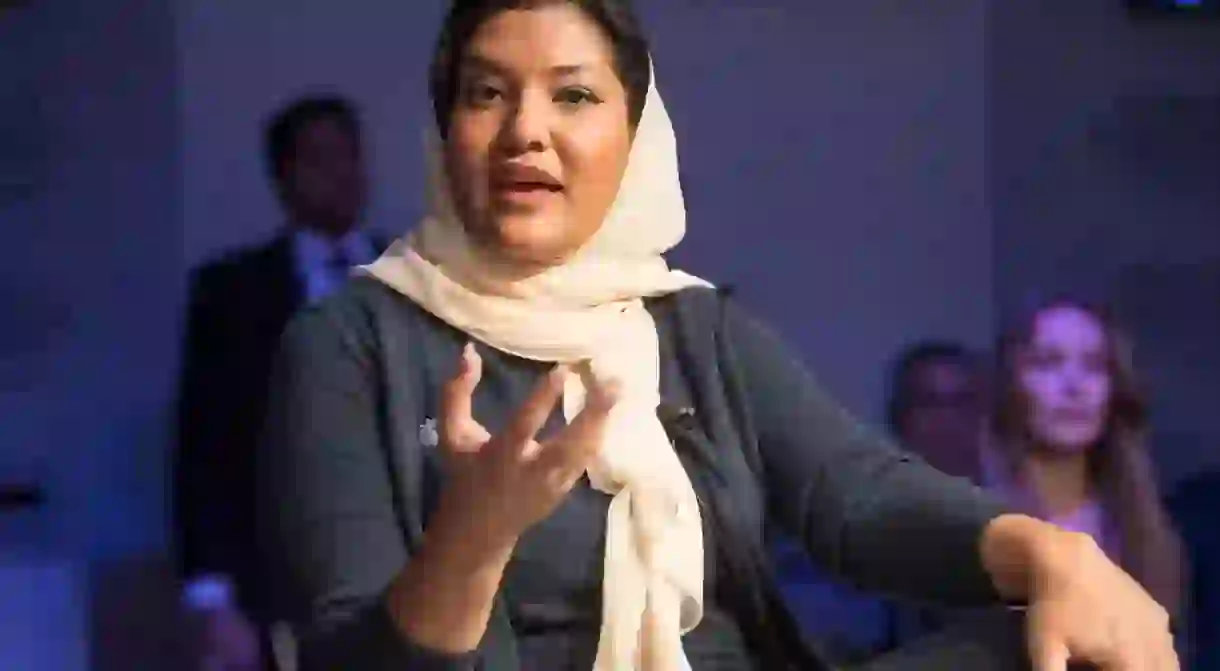‘Evolution, Not Westernisation’: Meet Saudi's Feminist Princess

Saudi Arabian Princess Reema Bint Bandar is one of the loudest voices supporting women’s empowerment in the country. Here’s everything you need to know about her.
Born in the extended ‘House of Saudi’ – Saudi Arabia’s royal family – Princess Reema Bint Bandar is daughter of Bandar bin Sultan Al Saud, grandson of Ibn Saud, the founder of modern day Saudi Arabia.
The princess lived most of her life in the United States but moved back to Saudi Arabia in 2006 at the age of 28. She has since been a major behind-the-scenes force for women’s rights in the country, at a time where the landscape for women is shifting rapidly.
Princess Reema is pushing for further policy changes
She recently started making headlines throughout Saudi Arabia and beyond after she became the first woman to be appointed the President of the Saudi Federation for Community Sports.
While a number of Saudis – both men and women – have made impressive strides in the world of sports (such as taking part in the Olympics, playing international matches for a number of sporting games, and even climbed Mount Everest), the overall landscape for sports in Saudi Arabia – especially for women – has been limited. Her job now is to change that.
She is developing a sports ecosystem in the Kingdom from scratch
Since 2017, several restrictions on women playing and watching sports have been lifted. Women can now attend football matches in Saudi Arabia for the first time ever, physical education has become mandatory in schools, and a lot of women-only gyms have also opened.

“I’ve encouraged women to go out on the streets and into the public parks to exercise,” said Princess Reema, speaking at the Chatham House think-tank in London in March 2018. “I’ve been telling women they don’t need permission to exercise in public, they don’t need permission to activate their own sports programs. And more and more they are doing it.”
But sports is not the only area Princess Reema has been empowering women (and men)
The princess has, in fact, been carrying out her royal duties, working as an entrepreneur, and been an activist and a philanthropist for many years now.
“These are things that are quick wins,” she said during a public conference in 2018. We know we can do the – women in stadiums, women driving – that’s great, but women driving is not the end-all, be-all of women’s’ rights.”

Princess Reema’s career in Saudi Arabia began at a Harvey Nichols in Riyadh. She soon became the first female CEO of the company and began intensively campaigning for more women in the workspace.
She introduced services such as childcare, transportation stipends (when women were not allowed to drive), and a number of other policies at Harvey Nichols Riyadh that lead to many women being able to work in a company that, until 2011, had only male employees. In 2014, she stepped down as the CEO and launched Alf Khair (Arabic for ‘a thousand blessings’), a social enterprise that aims to cultivate creative talent in the country and to promote that talent internationally. Alf Khair also developed Alf Darb, a training academy for women who want to enter the workforce.

Princess Reema has spoken on multiple local and international platforms about the importance of women being actively involved in the working economy. During the Chatham House think-tank, she also stated that Saudi Arabia “cannot have half of the population not working” and that “it’s time to focus on Saudi women’s capabilities, not their clothes”.
Not only is she heavily involved in the current changes in the country’s policies, she has also spoken publicly about the importance of recognising why these changes are taking place.
During the World Economic Forum held in Davos in early 2018, she stressed that encouraging women’s empowerment was “evolution, not Westernisation”.
“We’re not doing gender equality because the West wants it, or because it will target Human Rights Watch and get them off our backs, or because Amnesty International is going to say ‘great, good job, you’”.













